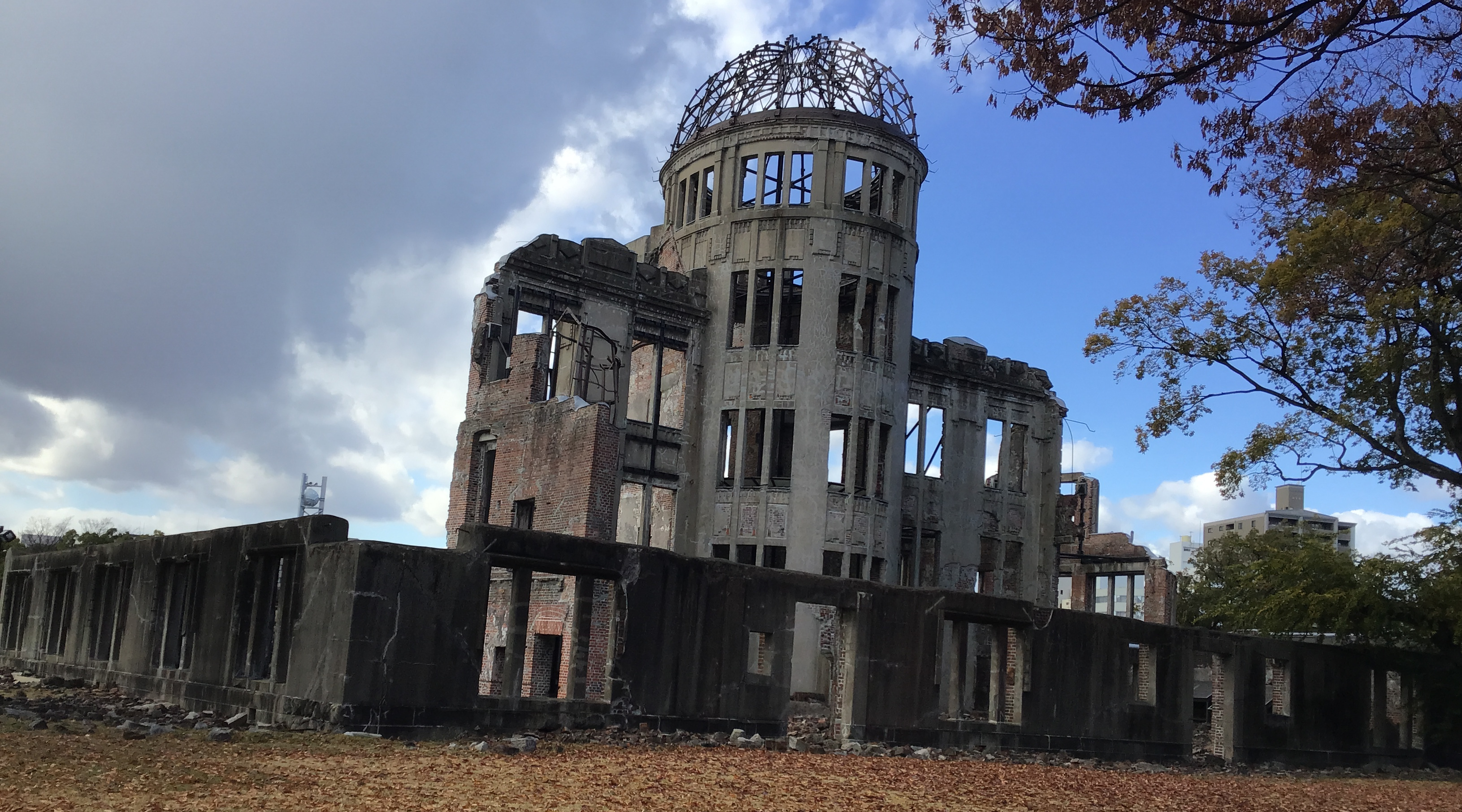
Right now, my wife is in the middle of a training that was supposed to be in California, but for reasons that strain understanding, some of the class is attending remotely, and some of the class is attending in person. She's part of the class that is attending remotely, but the class is still held at a normal California time zone schedule, so she's been awake at the strangest hours. This is weird for me because I'm used to having the house to myself during the day. It's not problematic per se, but I think there is an adjustment period in any work-from-home situation, and when your working environment changes, that period starts over. I normally get up between 2 am and 4 am anyway, but on the day where I was up at 11:30 PM waking her up, I took a nap later that day, so I had trouble going back to sleep, which through off the next day, which spiraled. Today felt like Friday anyway, which didn't help. This coming weekend is a three-day weekend for the July 4th holiday, and I'm really looking forward to it. I don't have any plans, but getting the day off and not having to go to work is always nice.
In November, I try to participate in NaNoWriMo, which stands for National Novel Writing Month, an event where you write a novel in a month. For this, a novel is defined as more than 50,000 words. I've succeeded every year that I attempted for the past six or seven years or so. I skipped one year during CoViD because I gave up Facebook that year, and I used Facebook to keep track of my status and let people know my progress. Using the projected opinions of others to encourage good habits is probably not healthly on a macro scale, but I think for this particular habit, it's probably not that bad. In general, the pressure that one feels from social media is bad for our society as a whole, but if it's going to exist, we should probably make the most of it. After skipping that year, I moved to Japan and joined the Discord server for NaNoWriMo people in Japan, and I was able to share my progress there, and I was able to start and complete NaNoWriMo that year. The group is really active, and they do writing events regularly, so I'm writing this during one of those.
Last year, we traveled to Hiroshima and the surrounding area to visit the Hiroshima Atomic Bombing site and the Peace Museum there. In the same trip, we also went to the Yamato Battleship Museum. This was a very strange experience, as one might imagine. Here are some photos from the trip.

If you didn't know, the United States of America used an atomic bomb on Imperial Japan near the end of World War II. One of these bombs was dropped on Hiroshima, a city about fifty minutes by train from where I live now. That measurement alone is alarming to Americans when I tell them. They ask, where do you live, and I say, about fifty minutes by train from Hiroshima, and they know about one day's worth of Hiroshima's history and try to make some kind of joke about that to ease their own tension. I've been to Hiroshima, I don't have any tension when hearing the name, but I imagine if someone told me they lived in Oklahoma City, I know about one day's worth of history from there, so I'd make some small joke about it to ease the tension that I would feel.
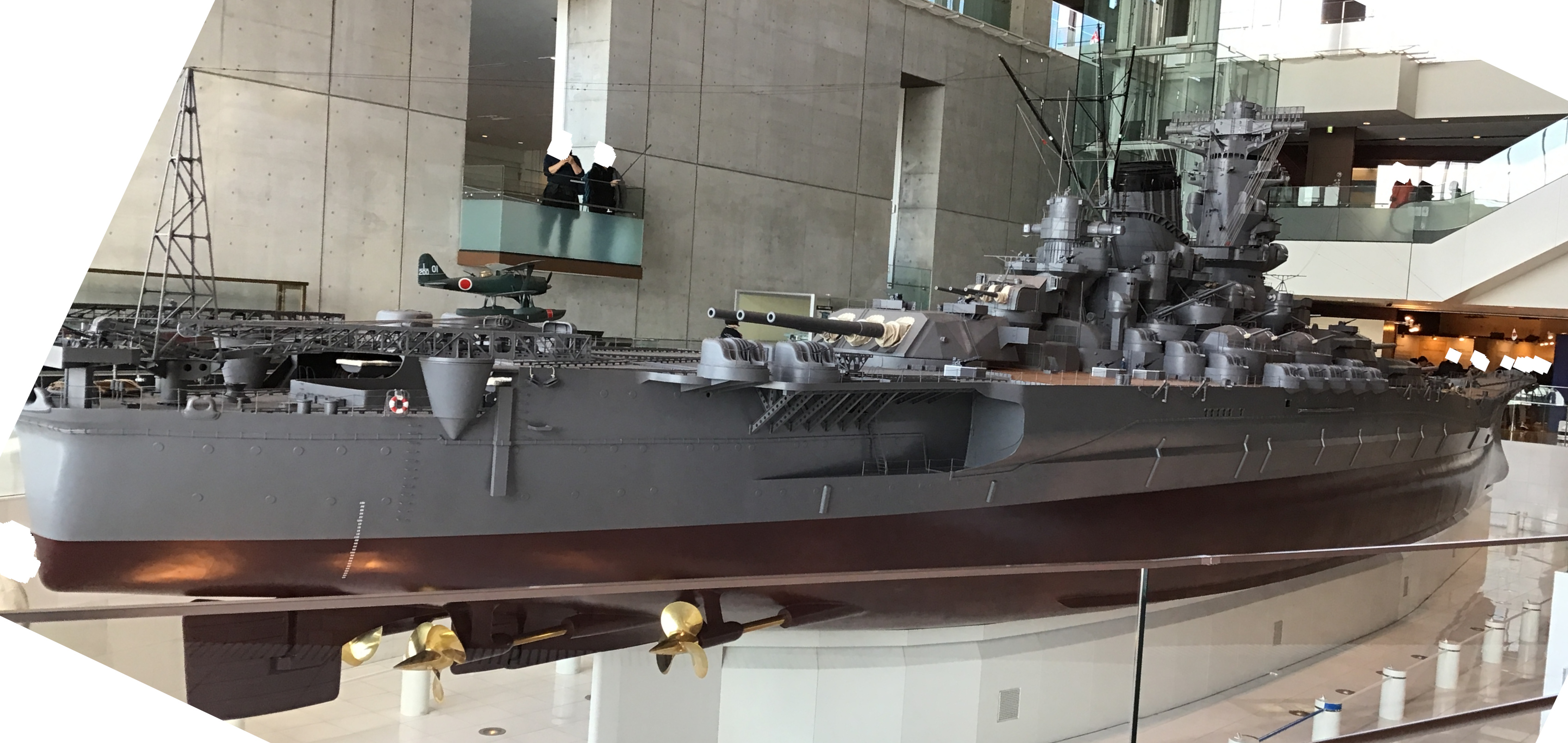
That's a model of the Battleship Yamato, the largest battleship in the history of battleships. There are larger ships, yes, but they are not battleships. There are more powerful battleships, yes, but they are not bigger. There were bigger battleships that were planned to be made by the United States (specifically the Montana Class) but they were never made, so this is the largest battleship ever made. There is a museum about it. For the most part, the museum is really tasteful. It has information about the history of the area around the naval yard, about the engineering that went into constructing the largest battleship every made. Also, keep in mind, this was the largest battleship ever made, and it was made before the larger ships that came later, and it was made during wartime. That last bit is a little of column A, little of column B, because yes, there are hardships during wartime, but there is also less red tape, so make of it what you will. Anyway. History, engineering, service record, and they didn't pull any punches with the service record, this ship was not on the winning side, and they did not sugar coat that fact. Like, I'm used to the losing side in a war really twisting things about to paint themselves in the best light, but this does not do that. I'm looking at you, Mississippi. This museum talks about all of the losses, all of the sacrifices that didn't pan out, all of the mistakes, and the eventual surrender of Imperial Japan. As far as I know, this is really close to the truth.
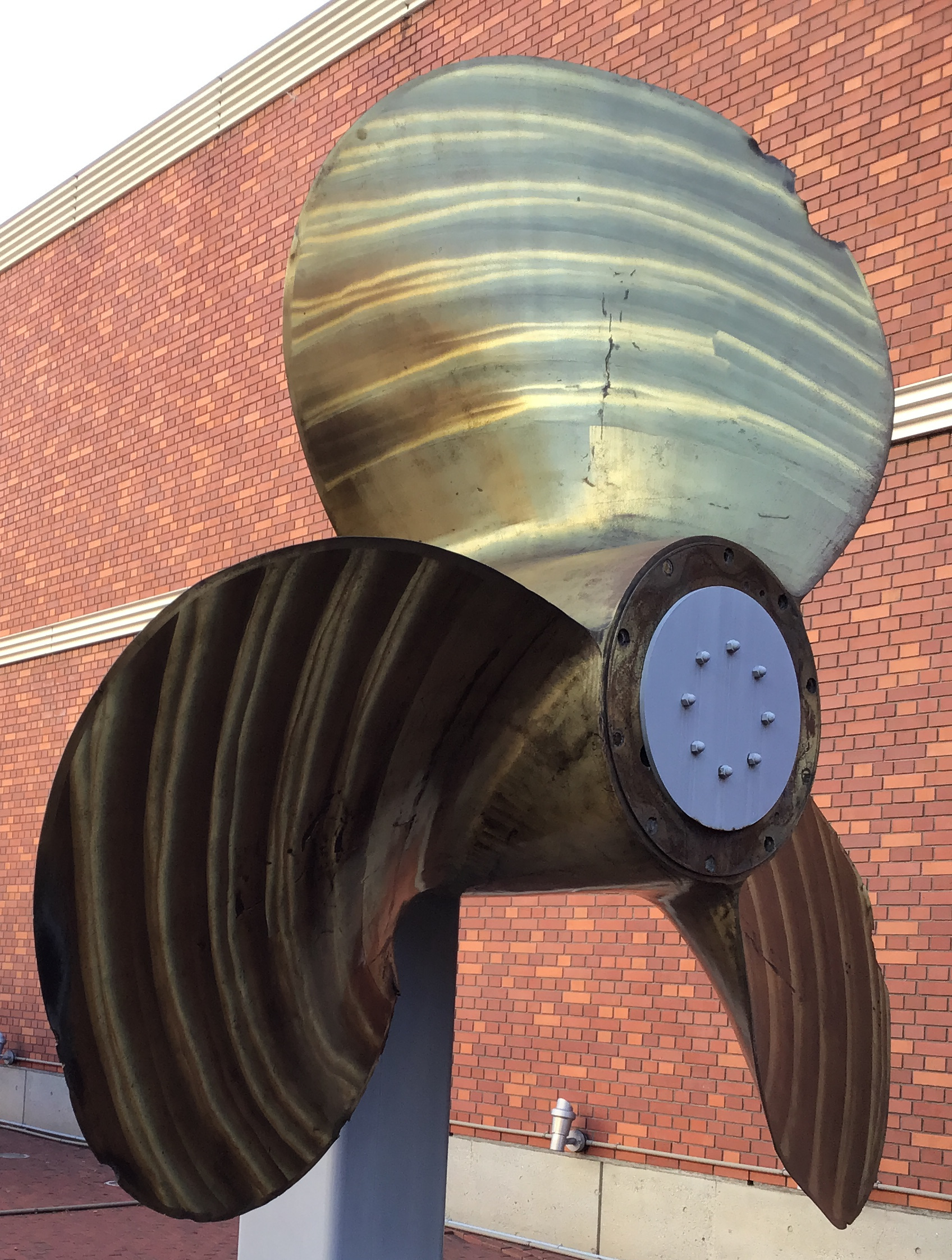
Mad props. So you go through the museum, high quality museum, and it's cool, you learn stuff, variety of topics, minimal bias, etc. Then you get to the gift shop. Wow. The gift shop is, by contrast, this over-the-top display of militarism. Here's a model toy of a Mitsubishi Zero fighter plane. There's a poster of an aircraft carrier. Here's a Japanese WWII-era tank with a stylized background. There's a era pop-gun. Don't get me wrong, I'm not against the idea of nationalist pride, or historic pride, or historic interest, or even all of the above. Yes, it can lead to problems, but I don't think it's fundamentally wrong. Like how bitcoin isn't always wrong, but it can be used to do things that are wrong more easily. But I'm coming out of the Hiroshima Peace Museum. That's my context.
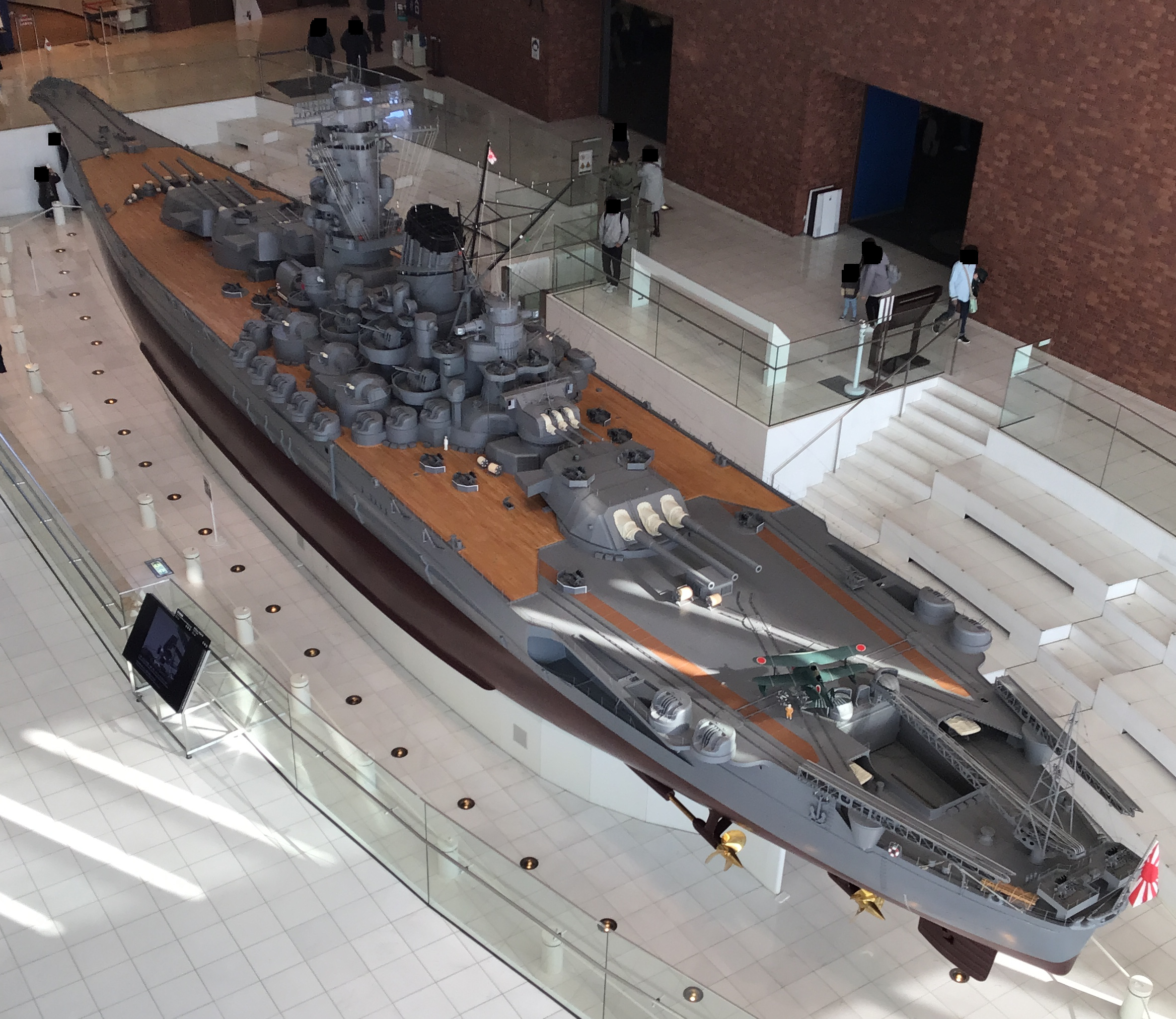
Another view of the same model. The Peace Museum is a trip. It's like the Yamato musuem, in that it tells you some of the history, it tells you about some of the context, and it tells you about the event and the effects. It does not pull punches, it goes into really specific detail about the effects of nuclear weapons on people. The take away is "Atomic weapons are bad," and I don't disagree with that. That's a message that should be vocalized. If it's a message that should be vocalized, who better to vocalize it than the ancestors of the people impacted, right?

Same model, different view. So what's the problem? Well, there is no context for the message. Fundamentally, the message "Atomic weapons are bad," is agreeable, but there is no consideration for the alternative. The terrible illnesses suffered by people in the fallout of the bomb were horrible, but there is no conversation about the firebombing of wooden cities that were, strategically speaking, the alterative for nuclear weapons. Was that better? Was that worse? Reasonable people can, and I would say should, agree that both are bad, but when the conversation is only about nuclear weapons, it leads people to draw different conclusions. "Nuclear weapons are bad," can very easily imply "and people who would use them are bad." So are people who use conventional bombs, or firebombs, not bad? Or are they just as bad?
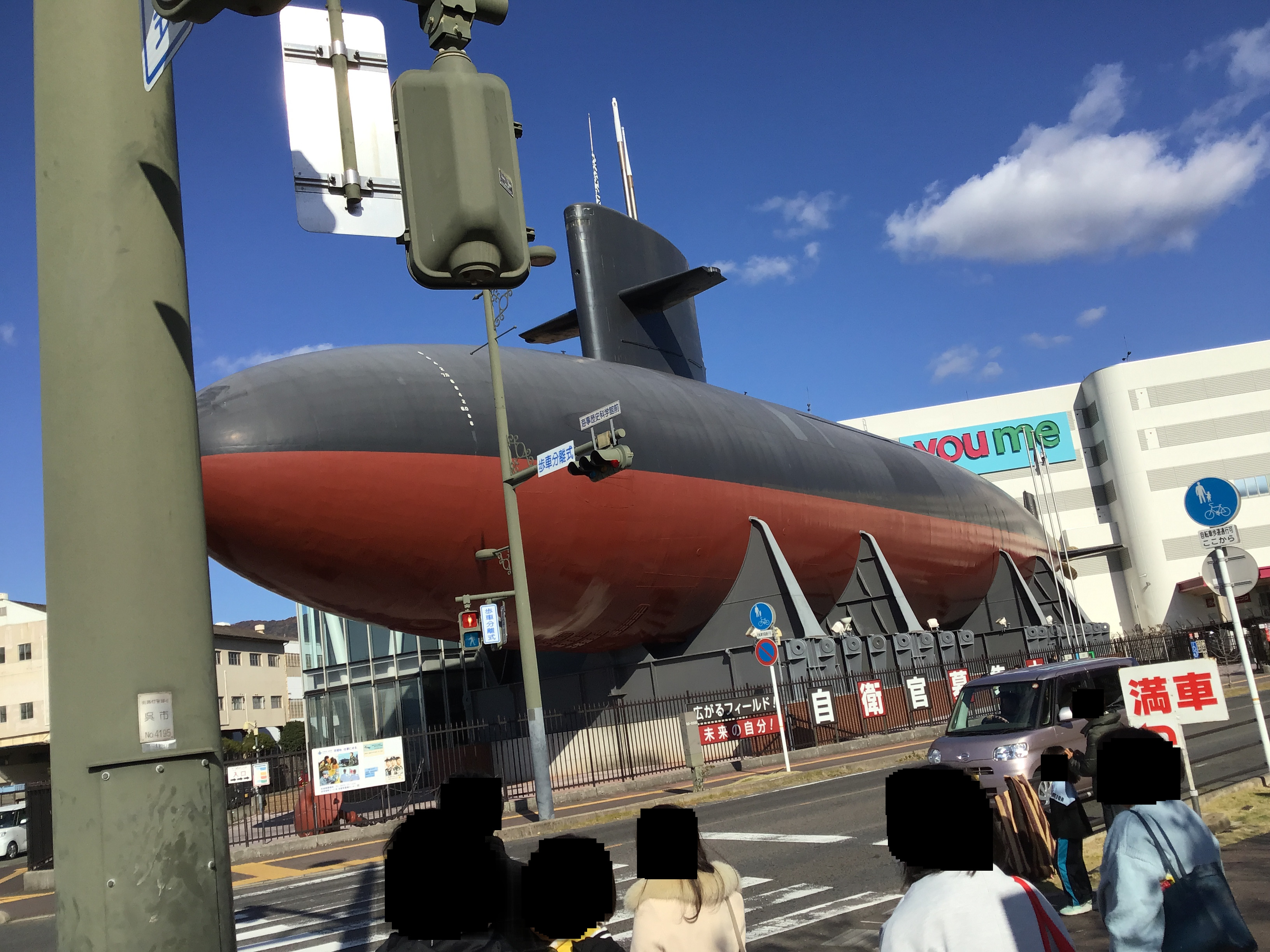
A submarine parked nearby. Completely unrelated. Another thing, and this really struck me, there is a lot of talk about how children working in the area were killed in terrible ways. These descriptions really pull on the heart strings of anyone who is not a psychopath, and the jury's still out on me, so I'm standing there thinking, wtf are these kids doing working to clear rubble? Why aren't they in school? Why aren't they away from the destruction of strategic bombing? When faced with the possibility of being bombed by Nazi Germany, British parents sent their kids to the countryside to be be safe. Wtf are these kids doing clearing rubble? You know that this is a dangerous area, 'cause there's rubble from exploding bombs all over the fucking place. And yeah, being blown up in nuclear fire, or dying of radiation poisoning is bad, but so is burning alive when the ship that you are on gets bombed, or getting shot running up a beach of an island who's name you can't pronounce in a part of the world you never wanted to be in. There are a lot of ways to die in a war, and it seems to me that they all suck.
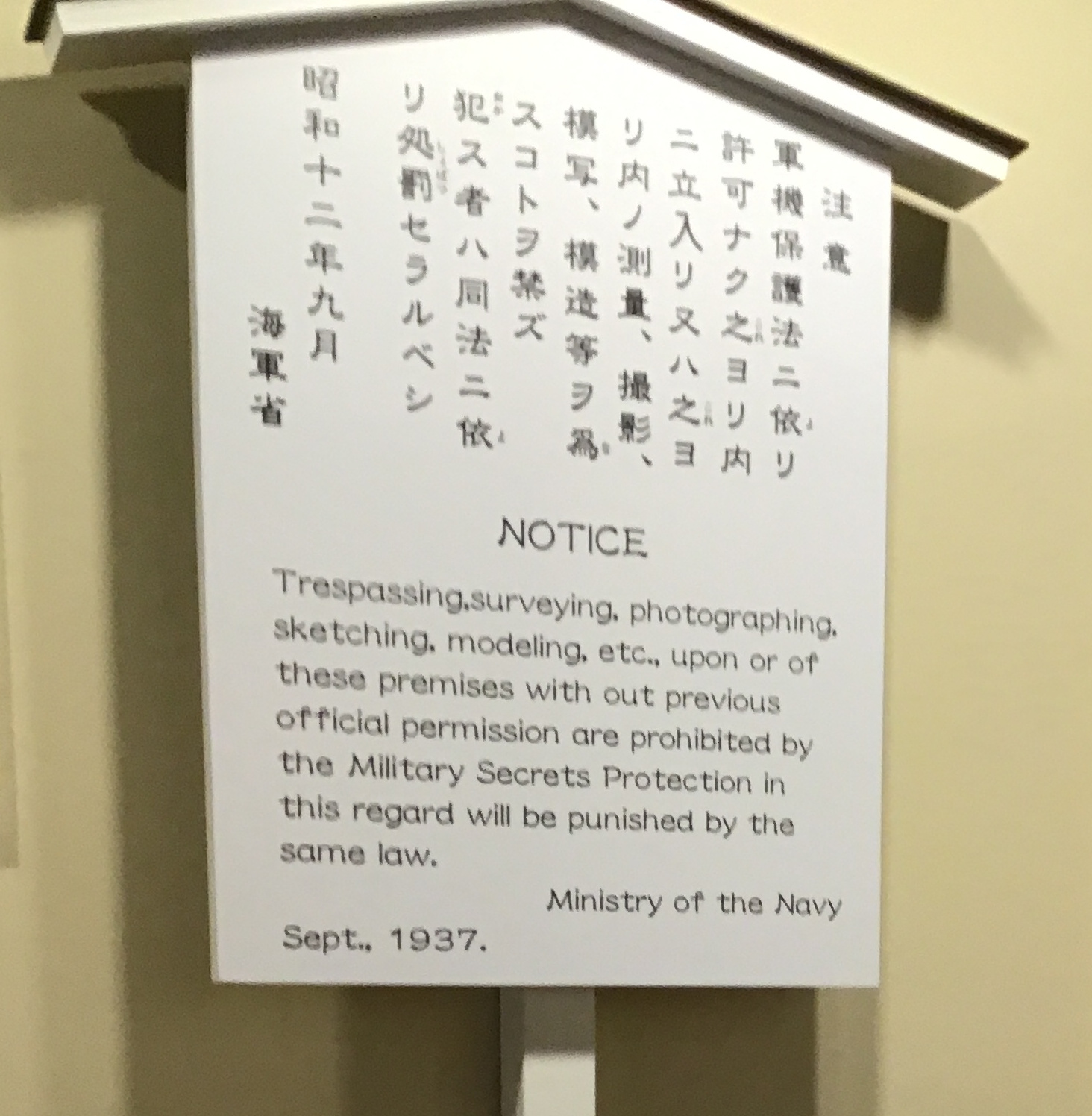
I think taking photos of "No photography signs" is harmless and funny. So the message of the Peace Museum seems to be "Nuclear weapons are bad." But as a citizen of the nation that gets looked at for dropping one, I'm biased. I feel attacked by that message, even though I fundamentally agree with it. So my defense is to turn the message back on the speaker. Yeah, nuclear weapons are bad. So don't do shit that gets them dropped on you.
At this time, SarisonZero lives and works in Japan. He doesn't think that this complicated argument is conveyed well in this medium.